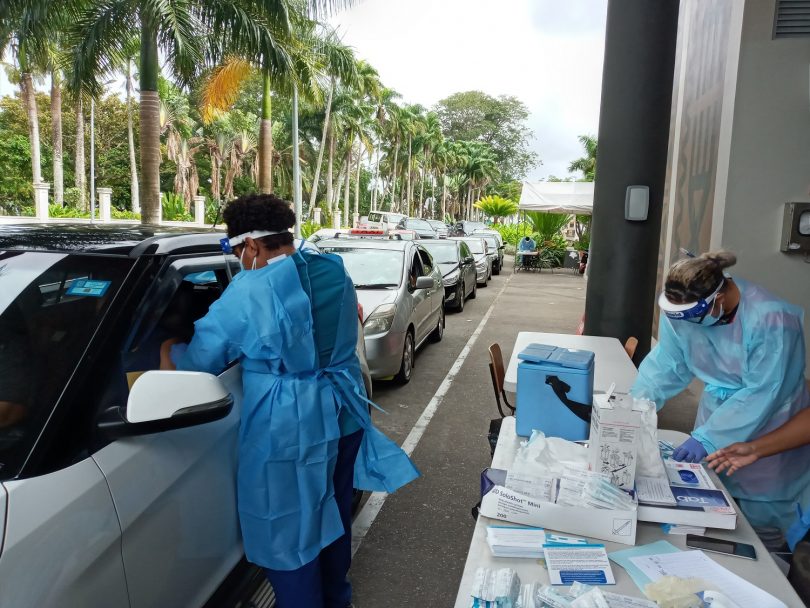Despite a weakening economic growth forecast for the Pacific, recent progress in vaccination rollouts and stronger public health measures are providing optimism for the safe reopening of borders in the near term, according to the latest issue of the Asian Development Bank’s (ADB) Pacific Economic Monitor (PEM) launched today.
After a pandemic-induced contraction of 5.8% in 2020, the economies of ADB’s 14 Pacific developing member countries (DMCs) are forecast to grow by 0.3% in 2021 and 4.0% in 2022. The growth is expected on the back of the outlook for Papua New Guinea (PNG), the subregion’s largest economy, where a modest recovery is projected this year before strengthening in 2022.
The forecast for 2021 represents a slight weakening from the Asian Development Outlook (ADO) 2021 in April, largely due to impacts of the ongoing coronavirus disease (COVID-19) outbreak in Fiji, as well as delays in Vanuatu’s planned partial reopening of its borders. Future growth will be influenced by the spread of the virus, the rollout of COVID-19 vaccines, and the ability to sustain fiscal stimulus international coordination.
“Safe travel bubbles are expected to contribute to a gradual recovery in the Pacific and bring hope to some of the region’s smaller, tourism-dependent economies,” said ADB Director General for the Pacific Leah Gutierrez. “Widespread vaccination, both within Pacific economies and in their major economic partners, will play a major role in boosting growth in 2022.”
Tourism to the Pacific remains largely closed, with arrivals during January–April 2021 plunging by 100% compared with the same period in 2020. Some Pacific destinations are looking to travel bubbles as a means of reviving their ailing tourism sectors.
The PEM examines a broad range of issues affecting Pacific economies including:
• “Travel bubbles of hope” in the Cook Islands, Niue, and Palau
• Fiji’s economic recovery efforts amid a new pandemic wave
• Navigating the recovery, strategic fiscal policy, and development support in Kiribati and Tuvalu
• Cautious steps toward reopening borders in the Federated States of Micronesia and the Marshall Islands
• The role of strong public financial management in PNG in supporting economic recovery
• How Nauru achieved full adult vaccination
• The role of the private sector in Vanuatu’s economic recovery from COVID-19
• How concessional finance helped Samoa and Tonga avoid potential debt sustainability issues
• Labor market landscape and challenges in Solomon Islands.
The PEM includes two policy briefs: an overview of COVID-19 vaccine coverage in the Pacific and the factors affecting country rollouts; and an examination of the impact of pandemic-related school closures on losses in learning and potential earnings in the subregion and options for improving education resilience in the face of disruptions.
ADB is committed to achieving a prosperous, inclusive, resilient, and sustainable Asia and the Pacific, while sustaining its efforts to eradicate extreme poverty. Established in 1966, it is owned by 68 members—49 from the region.


